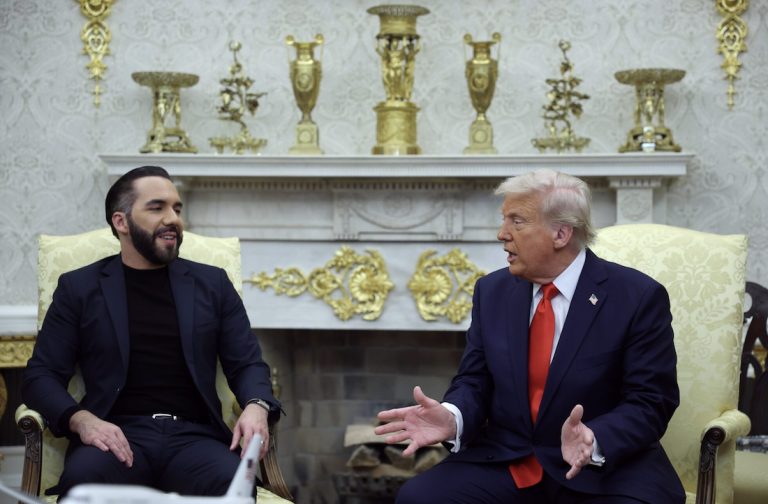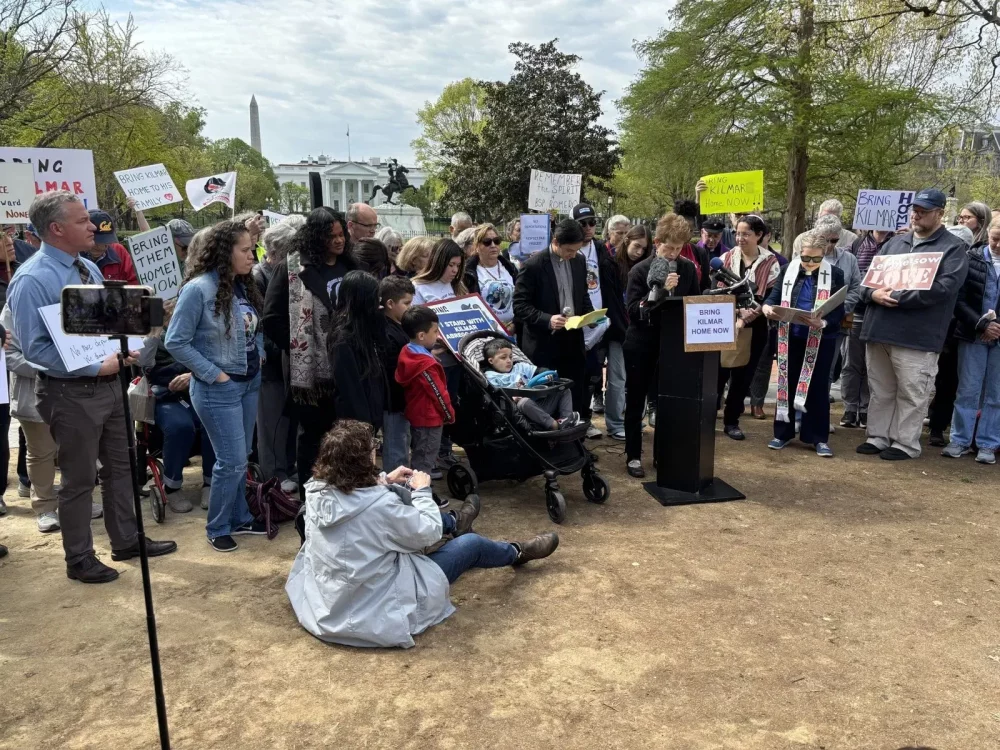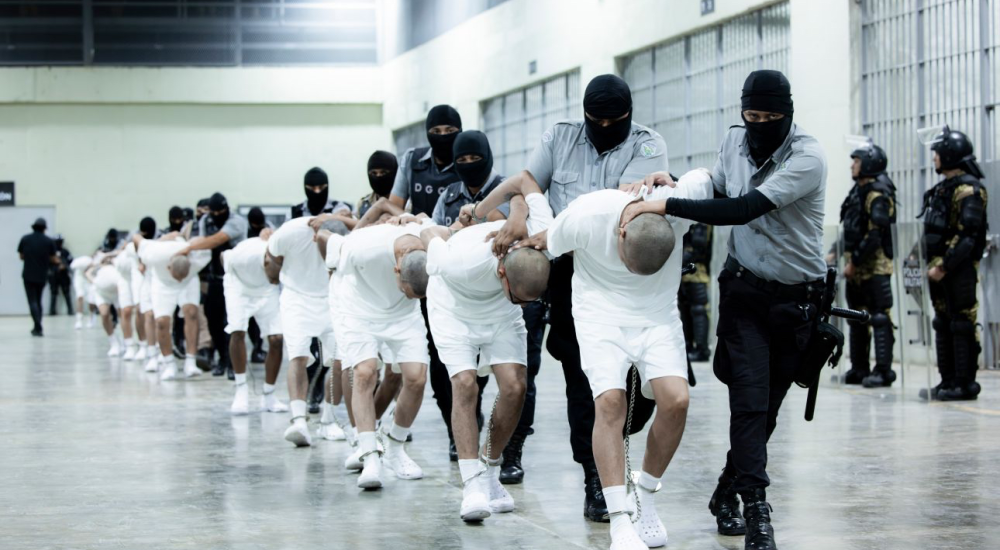
Washington, D.C. — In an Oval Office meeting on April 14, 2025, El Salvador’s President Nayib Bukele declared he would not return Kilmar Abrego García, the married Maryland resident mistakenly deported to El Salvador’s infamous Center for the Confinement of Terrorism (CECOT) prison.
The statement, made alongside U.S. President Donald Trump, has ignited alarm over the fate of García and the broader implications of the Trump administration’s aggressive deportation policies, which aim to expel over one million immigrants.
García, a 29-year-old father of three, was deported on March 15, 2025, despite a 2019 court order granting him protection from removal to El Salvador, where he faced threats of violence. Having lived in the U.S. since 2011, García built a life in Maryland with his U.S.-citizen wife, Jennifer Vasquez Sura, and their children.
His deportation, which the Trump administration admitted was an “administrative error,”
has become a flashpoint in the debate over due process and human rights.
Bukele’s remarks came in response to a reporter’s question about García’s fate.
“How can I return him to the United States? Am I going to smuggle him?” Bukele said, dismissing the query as “preposterous.” He labeled García a “terrorist” and claimed he lacked the authority to release him, even within El Salvador.

The Trump administration echoed this stance, with Attorney General Pam Bondi asserting that García’s return was “up to El Salvador,” while Secretary of State Marco Rubio argued that U.S. courts cannot dictate foreign policy.
The U.S. Supreme Court, however, ruled on April 10, 2025, that the Trump administration must “facilitate” García’s return, upholding a lower court order by Maryland District Judge Paula Xinis.
Xinis called García’s deportation “wholly lawless,” noting he has no criminal record in the U.S. or El Salvador.
Despite this, Trump officials have doubled down, alleging—without substantiated evidence—that García is a member of the MS-13 gang, designated a terrorist organization.
García’s attorneys, led by Benjamin Osorio, vehemently deny these claims, pointing to a 2019 immigration judge’s finding that García faced persecution in El Salvador.
The case has drawn sharp criticism from Democratic lawmakers and immigration advocates, who see it as a troubling precedent. “The cruelty is the point,” said Representative Rashida Tlaib (D-Mich.), accusing Bukele and Trump of flouting the rule of law.
Senator Chris Van Hollen (D-Md.) demanded sanctions against officials ignoring court orders, warning of a constitutional crisis. Vanessa Cárdenas of America’s Voice called the situation “a reminder why immigration is the tip of the spear for Trump’s assault on democracy.”
García’s family, meanwhile, is grappling with despair.

Vasquez Sura, speaking at a rally near the White House, tearfully pleaded, “My husband is not a criminal. He’s a loving father. Bring him home.”
Faith leaders and local officials, including Prince George’s County State Attorney Aisha Braveboy, have joined the call, urging accountability for what they describe as a grave miscarriage of justice.
Bukele’s refusal aligns with his role as a key Trump ally.
Since January, El Salvador has accepted over 200 deportees, mostly Venezuelans, under a $6 million deal to house them in CECOT, a facility criticized for human rights abuses. Trump praised Bukele as a “great friend” during the meeting, even floating the idea of sending U.S. citizens to the prison—a proposal that alarmed critics like Representative Alexandria Ocasio-Cortez (D-N.Y.), who called it “un-American.”
Legal experts warn that García’s case exposes vulnerabilities in the U.S. immigration system, particularly under Trump’s use of the 1798 Alien Enemies Act to bypass due process. “This is a deliberate catch-22,” said Ilya Somin, a constitutional law professor at George Mason University. “The U.S. says it can’t act because García is in El Salvador, and Bukele says he can’t act because it’s a U.S. issue. It’s a mockery of justice.”

As the standoff continues, García remains in CECOT, a facility known for harsh conditions and overcrowding.
His attorneys have asked Judge Xinis to hold the Trump administration in contempt, arguing that delays violate the Supreme Court’s directive. With daily updates ordered but little progress reported, the case underscores broader fears about unchecked executive power and the erosion of judicial authority.
For García’s family and supporters, the fight is personal. “Kilmar deserves to be here,” Vasquez Sura said, clutching a photo of her husband. “We won’t stop until he’s home.” As the nation watches, García’s fate hangs in the balance, a stark symbol of the human cost of mass deportation policies.